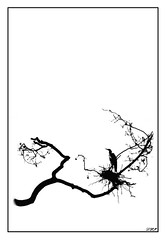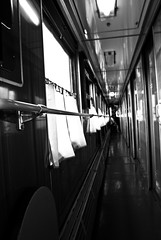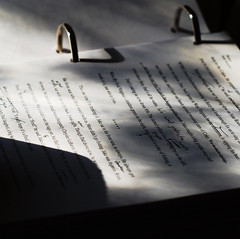I disappeared for a while. Sorry about that.
I got stuck in that place that we all know well: the fragmented, too-many-things-on-my-plate place.
First of all, it’s tax season here in Canada, which for a numerically challenged humanist like me, means it’s the season of hell. So far, it’s robbed me of almost three full days of writing. Second, I’m halfway through editing an issue of an academic journal, and though it’s good, honest work that I do every three months or so, it’s hard to write in a sustained fashion on editing days. Finally, there are the tasks of everyday life that keep us busy and make us tired.
But the garden is coming back to life after a winter that, for me, seemed tougher than most. The last of the snow melted only yesterday, yet brave tendrils have been fighting their way up through the soil. My son and I have been cheering on the tulips and daffodils as they get bigger by the day. He calls them “baby flowers,” exclaiming “I LOVE IT!” each time I point out a new one. “This is our garden, right, Mummy? We take care it.” Few things make me happier than witnessing my son’s love and respect for living things.
Texts are growing too: I finally got an essay off my desk and to the collection’s editor who likes it. Hurray! I’m now moving onto dreaming up a new one. And as soon as my taxes are off my desk, I’ll get back to the Siberia book properly.
I’ve been hearing from readers and colleagues who would like to take part in my new Creative Nonfiction Conversations. I’m working on some plans for chats about essays, books, and maybe even about a documentary film. Keep an eye out for upcoming interviews, and send ideas my way if you want to have a chat too. As soon as I dig myself out and return to the my usual rhythms, the conversations will begin.
I wish you strength if you, like me, are doing taxes. May spring replenish your energies, and may you return to writing, if (like me) your life has pulled you to pieces.
[Photo: Kuzeytac]











